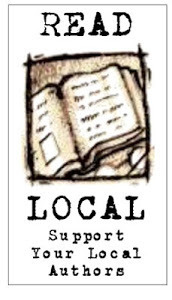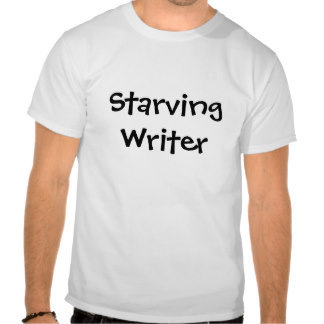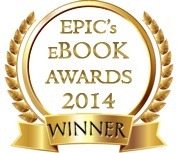Brian Burt's Blog: Work in Progress, page 8
June 8, 2014
Truth vs. Fiction - Stranger Danger!
Mark Twain coined the idiom that "truth is stranger than fiction." In the genres of SF and fantasy, that phrase might seem less applicable, but lately I wonder... and worry. I'm currently writing a trilogy about a world where climate change, and a disastrous attempt to geo-engineer a solution to it, turn our hospitable planet into a scary, unrecognizable, and much deadlier place. I used to think this imagined Earth was a fun, fantastical world to explore because it was comfortably remote from our reality. Now, as I read the facts emerging around climate science in the news, I'm not so sure.
Polar ice and glaciers are melting faster than the worst-case scenarios forecast by climate models in the recent past, and that "liquidation of our strategic ice reserve" seems to be accelerating, as if unforeseen feedback loops are amplifying the effects. Species are dying at an alarming rate as well, including species we humans rely on to pollinate our crops. In most cases, we can't definitively link these catastrophic die-offs to climate change because there are too many variables in the mix. And that's the scariest part: we don't have the sophistication at our current level of science and technology to confidently predict what our collective actions will do to the biosphere on which we depend for our survival. Are the SF dystopias of cli-fi over the top... or are they underselling the risks we're all, consciously or unconsciously, accepting?
I think about some of the classic SF stories that have left an indelible impression on my life (and left me contemplating them for a LONG time afterward). Fahrenheit 451 seemed allegorical at one time, but repressive regimes around the world tightly control the media message within their spheres of influence; even in the U.S. of A., we have local governmental bodies banning creative works because of bureaucrats' rigid beliefs or political ideologies. 1984 was dismissed as hyperbolic when that year came and went, but revelations about the NSA's level of visibility into our lives (and - let's not kid ourselves - government agencies in other nations no doubt exercise similar degrees of "citizen surveillance"), and the continuing encroachment of data mining and big data, make this level of control all too plausible. William Gibson's Neuromancer and his other novels paint the vision of a grim future where the lines between real-space and cyberspace blur; in my day job as an information security engineer, I see this fictional world merging with our reality a little more every day.
I no longer dismiss the dark dystopian visions of SF as harmless flights of fancy, nor as cautionary tales full of sign posts that are intended to be more symbolic than predictive. The truth is that we're advancing technologically at a rate far more rapid than our human culture and perception can keep pace. Even our fiction has a difficult time keeping up with the dramatic leaps of fact.
Personally, I don't think we'll realize any of these dystopias by malicious intent. I think, if it happens, it will happen gradually and inadvertently, as we slide down that "slippery slope" of popular cliche, gathering momentum behind the mass of complacency and apathy until we find ourselves unable to slow our descent. Truth is indeed stranger than fiction. We "responsible" parents are advised to teach our children to fear the stranger until his identity and motives become clear.
Mindless fear is counterproductive. But rational, actionable fear can be a crucial survival skill. SF has always tried to shine a light into those dark corners of society where the monsters lurk, not just to give us a visceral scare, but to make us think. What kind of world will we make in our shared future?
Together, let's hope we can imagine one that fills us with wonder rather than regret.
Polar ice and glaciers are melting faster than the worst-case scenarios forecast by climate models in the recent past, and that "liquidation of our strategic ice reserve" seems to be accelerating, as if unforeseen feedback loops are amplifying the effects. Species are dying at an alarming rate as well, including species we humans rely on to pollinate our crops. In most cases, we can't definitively link these catastrophic die-offs to climate change because there are too many variables in the mix. And that's the scariest part: we don't have the sophistication at our current level of science and technology to confidently predict what our collective actions will do to the biosphere on which we depend for our survival. Are the SF dystopias of cli-fi over the top... or are they underselling the risks we're all, consciously or unconsciously, accepting?
I think about some of the classic SF stories that have left an indelible impression on my life (and left me contemplating them for a LONG time afterward). Fahrenheit 451 seemed allegorical at one time, but repressive regimes around the world tightly control the media message within their spheres of influence; even in the U.S. of A., we have local governmental bodies banning creative works because of bureaucrats' rigid beliefs or political ideologies. 1984 was dismissed as hyperbolic when that year came and went, but revelations about the NSA's level of visibility into our lives (and - let's not kid ourselves - government agencies in other nations no doubt exercise similar degrees of "citizen surveillance"), and the continuing encroachment of data mining and big data, make this level of control all too plausible. William Gibson's Neuromancer and his other novels paint the vision of a grim future where the lines between real-space and cyberspace blur; in my day job as an information security engineer, I see this fictional world merging with our reality a little more every day.
I no longer dismiss the dark dystopian visions of SF as harmless flights of fancy, nor as cautionary tales full of sign posts that are intended to be more symbolic than predictive. The truth is that we're advancing technologically at a rate far more rapid than our human culture and perception can keep pace. Even our fiction has a difficult time keeping up with the dramatic leaps of fact.
Personally, I don't think we'll realize any of these dystopias by malicious intent. I think, if it happens, it will happen gradually and inadvertently, as we slide down that "slippery slope" of popular cliche, gathering momentum behind the mass of complacency and apathy until we find ourselves unable to slow our descent. Truth is indeed stranger than fiction. We "responsible" parents are advised to teach our children to fear the stranger until his identity and motives become clear.
Mindless fear is counterproductive. But rational, actionable fear can be a crucial survival skill. SF has always tried to shine a light into those dark corners of society where the monsters lurk, not just to give us a visceral scare, but to make us think. What kind of world will we make in our shared future?
Together, let's hope we can imagine one that fills us with wonder rather than regret.

#SFWApro
May 19, 2014
Reading Local
My wife and I are both fans of the local food movement. We're members of a CSA sponsored by our area nature center and love eating at a nearby restaurant that specializes in serving locally sourced foods, from meat to produce to dairy to beer and wine. "Eat local" is a familiar rallying cry. Well, thanks to the work of our wonderful local library, I had a chance to apply this to books.
The first annual local author fair drew far more writers than I would have expected in this corner of west Michigan. It was a great experience meeting other kindred spirits: I don't really know other writers and hadn't met many face to face prior to the event. I'm a member of an excellent virtual critique group, the Critters online writers workshop, and that's been invaluable. Critiquing other writers' works has proven more enlightening than reviewing others' critiques of my own stories. I always feel like I take away as many insights from analyzing someone else's tale as I give (which may just be a sad commentary on the quality of my feedback). Online communities are great for bridging geographical boundaries and connecting like-minded people with shared interests. Still, I'm old enough that emoticons don't pack the same punch as a handshake and a smile.
So meeting other authors in the flesh, all living within an hour's drive of my home, made the event special. It piqued my interest enough that I ignored my usual genre boundaries and bought the eBooks of several local novelists who write outside the realms of SF & fantasy. I gobbled up The Whole Golden World, by Kristina Riggle; Chemical Attraction, by Christina Thompson; and The Turning, by Jennifer Armintrout. I enjoyed them immensely, especially because I could place their creators in nearby communities and put faces with the names. They had very different styles, different voices, different visions, but a unifying thread: locality.
I'll always be a science fiction and fantasy writer, and reader, at heart. But I've learned some valuable lessons from expanding my reading horizons... by narrowing the focus to the talented practitioners in my back yard. I still have quite a few locally sourced books I can't wait to consume with gusto.
I think this "read local" movement could catch on!
The first annual local author fair drew far more writers than I would have expected in this corner of west Michigan. It was a great experience meeting other kindred spirits: I don't really know other writers and hadn't met many face to face prior to the event. I'm a member of an excellent virtual critique group, the Critters online writers workshop, and that's been invaluable. Critiquing other writers' works has proven more enlightening than reviewing others' critiques of my own stories. I always feel like I take away as many insights from analyzing someone else's tale as I give (which may just be a sad commentary on the quality of my feedback). Online communities are great for bridging geographical boundaries and connecting like-minded people with shared interests. Still, I'm old enough that emoticons don't pack the same punch as a handshake and a smile.
So meeting other authors in the flesh, all living within an hour's drive of my home, made the event special. It piqued my interest enough that I ignored my usual genre boundaries and bought the eBooks of several local novelists who write outside the realms of SF & fantasy. I gobbled up The Whole Golden World, by Kristina Riggle; Chemical Attraction, by Christina Thompson; and The Turning, by Jennifer Armintrout. I enjoyed them immensely, especially because I could place their creators in nearby communities and put faces with the names. They had very different styles, different voices, different visions, but a unifying thread: locality.
I'll always be a science fiction and fantasy writer, and reader, at heart. But I've learned some valuable lessons from expanding my reading horizons... by narrowing the focus to the talented practitioners in my back yard. I still have quite a few locally sourced books I can't wait to consume with gusto.
I think this "read local" movement could catch on!

#SFWApro
Published on May 19, 2014 17:23
•
Tags:
read-local
April 16, 2014
Writers Starve, Too!
All of us are familiar with the (in)famous phrase, "starving artists." The genesis of that expression traces back to people who literally chose a life of poverty in order to chase their muse and focus on generating works of art that rarely brought in enough income to pay the bills. The reality is that few artists, in any discipline, ever manage to achieve enough commercial success to support themselves solely on the basis of their "labors of love." Let's face it: for most artists, the odds of winning a fortune in the lottery are as good or better.
But there's another sense in which artists often starve. They starve for encouragement, understanding, and emotional support in a world where economic success is too often the sole (or main) criterion for judging a person's contribution to society.
Like anyone who's tried his hand at a creative endeavor, I have tremendous sympathy for folks who dedicate themselves to an artistic pursuit. That's why it's great to see local artists featured at community art fairs, art hops, and in local venues. I enjoy walking into a neighborhood pub or restaurant and seeing paintings by an area resident hanging on the walls. It's great to see a downtown store or office featuring local sculptures, with price tags displayed along with artist contact info. It's awesome to hear local bands playing concerts at the community band shell or in the bars nearby. Seeing local actors perform community theater productions warms my heart. All of these local artists deserve respect and support. They shouldn't have to starve for encouragement.
But writers are artists, too. Their labors are just as long and lonely, their dedication no less deserving of respect. Writers starve, too. Why are they perceived so differently?
I recently had my debut novel published. It was a wonderful milestone, and I was psyched about it. I (naively) thought that my community would generally be supportive, as I'd seen them being for painters, sculptors, and musicians in the area. I experienced a rude awakening. Some local merchants were in fact very encouraging. But a surprising number of them, who displayed paintings or sculptures by local artists or paid local bands to perform, wouldn't even let me put out promotional bookmarks. I actually had one person admit to me that writers weren't like other artists: "anybody can write a book."
Wow - anybody who's actually tried to write a book (fiction or nonfiction) knows how daunting, difficult, and time-consuming it really is. I can't imagine this person telling me that "anybody can paint," or "anybody can sculpt," or "anybody can sing and play an instrument." On some level, that might be true... but only someone who's worked hard, paid some dues, and polished their craft can write a good book.
Why are writers perceived differently than other artists? I suspect it's because writing is indeed a skill that everybody possesses to a limited degree. At minimum, almost every modern human has experience writing reports, memos, e-mails, messages, notes, or some other form of document. We all write. That seems to make us more ambivalent about the level of commitment required to write well.
I freely acknowledge that I'm a rookie novelist, with only one novel-length work under my belt. I have a lot to learn. But I wrote quite a bit of short fiction before embarking on the arduous journey to complete a novel. I've been honing my skills (crude though they may still be) for years. Other writers in our area (including virtually anyone who's managed to complete a full-length book) have similarly paid their dues. They are artists who work with the medium of language. They may not be full-fledged professionals or bestsellers, but they are every bit as deserving of community support as amateur or semi-pro artists in other disciplines.
Don't get me wrong: my goal isn't to take anything away from the local painters, sculptors, musicians, performers, etc., who contribute richly to our community by virtue of their creativity. I just believe writers should be included in their fraternity. Anyone who starves to further their art deserves to eat. And, despite the cliche, writers really can't "eat their words."
So support your local writers - be they short or novel-length fiction, book-length nonfiction, essay, or poetry practitioners. They need nurturing, too. And, to end on an optimistic note, I'll express my sincere gratitude to our local library (Ransom District Library) for hosting their first Local Author Fair this week. It's a wonderful idea, the library is an ideal venue, and it's certain to be a veritable feast of encouragement for area wordsmiths. Thank you for remembering that writers are artists, too, and that hearty psychic meals are few and far between!
But there's another sense in which artists often starve. They starve for encouragement, understanding, and emotional support in a world where economic success is too often the sole (or main) criterion for judging a person's contribution to society.
Like anyone who's tried his hand at a creative endeavor, I have tremendous sympathy for folks who dedicate themselves to an artistic pursuit. That's why it's great to see local artists featured at community art fairs, art hops, and in local venues. I enjoy walking into a neighborhood pub or restaurant and seeing paintings by an area resident hanging on the walls. It's great to see a downtown store or office featuring local sculptures, with price tags displayed along with artist contact info. It's awesome to hear local bands playing concerts at the community band shell or in the bars nearby. Seeing local actors perform community theater productions warms my heart. All of these local artists deserve respect and support. They shouldn't have to starve for encouragement.
But writers are artists, too. Their labors are just as long and lonely, their dedication no less deserving of respect. Writers starve, too. Why are they perceived so differently?
I recently had my debut novel published. It was a wonderful milestone, and I was psyched about it. I (naively) thought that my community would generally be supportive, as I'd seen them being for painters, sculptors, and musicians in the area. I experienced a rude awakening. Some local merchants were in fact very encouraging. But a surprising number of them, who displayed paintings or sculptures by local artists or paid local bands to perform, wouldn't even let me put out promotional bookmarks. I actually had one person admit to me that writers weren't like other artists: "anybody can write a book."
Wow - anybody who's actually tried to write a book (fiction or nonfiction) knows how daunting, difficult, and time-consuming it really is. I can't imagine this person telling me that "anybody can paint," or "anybody can sculpt," or "anybody can sing and play an instrument." On some level, that might be true... but only someone who's worked hard, paid some dues, and polished their craft can write a good book.
Why are writers perceived differently than other artists? I suspect it's because writing is indeed a skill that everybody possesses to a limited degree. At minimum, almost every modern human has experience writing reports, memos, e-mails, messages, notes, or some other form of document. We all write. That seems to make us more ambivalent about the level of commitment required to write well.
I freely acknowledge that I'm a rookie novelist, with only one novel-length work under my belt. I have a lot to learn. But I wrote quite a bit of short fiction before embarking on the arduous journey to complete a novel. I've been honing my skills (crude though they may still be) for years. Other writers in our area (including virtually anyone who's managed to complete a full-length book) have similarly paid their dues. They are artists who work with the medium of language. They may not be full-fledged professionals or bestsellers, but they are every bit as deserving of community support as amateur or semi-pro artists in other disciplines.
Don't get me wrong: my goal isn't to take anything away from the local painters, sculptors, musicians, performers, etc., who contribute richly to our community by virtue of their creativity. I just believe writers should be included in their fraternity. Anyone who starves to further their art deserves to eat. And, despite the cliche, writers really can't "eat their words."
So support your local writers - be they short or novel-length fiction, book-length nonfiction, essay, or poetry practitioners. They need nurturing, too. And, to end on an optimistic note, I'll express my sincere gratitude to our local library (Ransom District Library) for hosting their first Local Author Fair this week. It's a wonderful idea, the library is an ideal venue, and it's certain to be a veritable feast of encouragement for area wordsmiths. Thank you for remembering that writers are artists, too, and that hearty psychic meals are few and far between!

#SFWApro
March 17, 2014
Good Things Come in Pairs
The Chinese have a saying that "good things come in pairs." Today, good news arrived that way.
In the morning, I graduated from crutches to a cane following full hip replacement surgery (the price I paid for all those years of running).
In the afternoon, I found out that I had won the 2014 EPIC eBook Award in the Science Fiction category for my debut novel, Aquarius Rising: In the Tears of God.
Boy, was that afternoon announcement powerful medicine: the pain in my hip has faded quite a bit!
You can see the complete list of 2014 EPIC eBook Award winners here:
What a wonderful honor. Thank you to EPIC for extending it - I'm thrilled to be among this year's winners!
In the morning, I graduated from crutches to a cane following full hip replacement surgery (the price I paid for all those years of running).
In the afternoon, I found out that I had won the 2014 EPIC eBook Award in the Science Fiction category for my debut novel, Aquarius Rising: In the Tears of God.
Boy, was that afternoon announcement powerful medicine: the pain in my hip has faded quite a bit!
You can see the complete list of 2014 EPIC eBook Award winners here:
Winners of the 2014 eBook Awards
What a wonderful honor. Thank you to EPIC for extending it - I'm thrilled to be among this year's winners!

#SFWApro
Published on March 17, 2014 16:59
•
Tags:
epic-ebook-awards
February 15, 2014
Writing Is Rewriting...or Re-blogging
I just rebooted my blog, renaming it "Work in Progress: random musings from a writer struggling to become an author." In terms of truth in advertising, I think this is a better fit.
For years, I only wrote short fiction, the writer's form of instant gratification, especially when compared to the daunting effort of tackling a full-length novel. I enjoyed it immensely. But if brevity is the soul of wit, then my wit's soul took a leave of absence (or my wit joined the ranks of the undead). I always struggled to cut my short stories down to the target markets' word length maximums. So I decided to take the plunge and try a novel.
I learned a lot from that effort. First, like so many other endeavors in my life, I was reminded that very few people get something right on the first try. I put my heart into the story, but, in hindsight, I see many things I wish I had done differently. Aquarius Rising: In the Tears of God was always intended to be Book 1 of a trilogy. I just finished the first draft of Book 2, "Blood Tide," and I think it benefited from the hard lessons learned while writing Book 1. We'll see what readers think.
Second, I learned that marketing and promotion of a novel is as hard as (or harder than!) writing it. There are more than a million new books released every year now, with the advent of eBooks and self-publishing. So getting that first novel on the virtual shelves of Amazon, Apple iBookstore, Barnes & Noble, and Kobo is really not that different from slipping it into another slush pile. How do you get readers to notice you amid all the online noise? Still haven't figured that one out. Although one piece of advice from an author I admire really resonates with me: "If you want to sell more books, write more books." That makes sense on many levels: more exposure, hopefully some repeat business, and continued progress at polishing one's craft.
So this re-titled blog renews my commitment. I'll keep writing books, keep putting them out there, keep trying to learn from the review comments (good, bad, and ugly). Most of all, I'll keep making progress toward becoming the writer I'd like to be. And if a few readers along the way can honestly say "hey, that was cool, I enjoyed that," then all the effort will be worth it!

For years, I only wrote short fiction, the writer's form of instant gratification, especially when compared to the daunting effort of tackling a full-length novel. I enjoyed it immensely. But if brevity is the soul of wit, then my wit's soul took a leave of absence (or my wit joined the ranks of the undead). I always struggled to cut my short stories down to the target markets' word length maximums. So I decided to take the plunge and try a novel.
I learned a lot from that effort. First, like so many other endeavors in my life, I was reminded that very few people get something right on the first try. I put my heart into the story, but, in hindsight, I see many things I wish I had done differently. Aquarius Rising: In the Tears of God was always intended to be Book 1 of a trilogy. I just finished the first draft of Book 2, "Blood Tide," and I think it benefited from the hard lessons learned while writing Book 1. We'll see what readers think.
Second, I learned that marketing and promotion of a novel is as hard as (or harder than!) writing it. There are more than a million new books released every year now, with the advent of eBooks and self-publishing. So getting that first novel on the virtual shelves of Amazon, Apple iBookstore, Barnes & Noble, and Kobo is really not that different from slipping it into another slush pile. How do you get readers to notice you amid all the online noise? Still haven't figured that one out. Although one piece of advice from an author I admire really resonates with me: "If you want to sell more books, write more books." That makes sense on many levels: more exposure, hopefully some repeat business, and continued progress at polishing one's craft.
So this re-titled blog renews my commitment. I'll keep writing books, keep putting them out there, keep trying to learn from the review comments (good, bad, and ugly). Most of all, I'll keep making progress toward becoming the writer I'd like to be. And if a few readers along the way can honestly say "hey, that was cool, I enjoyed that," then all the effort will be worth it!

#SFWApro
Published on February 15, 2014 07:47
•
Tags:
rewriting
February 8, 2014
Two-Thirds of a Trilogy!
WOOHOO!!! Just finished the first draft of Aquarius Rising Book 2 - Blood Tide. What a rush! For so long, I felt like I was at the bottom of Mount Everest, starting up in the middle of a blizzard. What a great feeling to reach the summit!
Going to let the new novel percolate for a few weeks, then the revision process starts. (Writing is rewriting, as the gurus say. ;-) Call me crazy, but I actually savor this part: working to polish and refine the "rough draft."
Wish me luck!
Going to let the new novel percolate for a few weeks, then the revision process starts. (Writing is rewriting, as the gurus say. ;-) Call me crazy, but I actually savor this part: working to polish and refine the "rough draft."
Wish me luck!
Published on February 08, 2014 12:29
•
Tags:
first-draft, writing
January 9, 2014
Mysteries Told the Navajo Way
At a recent library book sale, my better half managed to pick up half a dozen paperback novels from Tony Hillerman's Navajo Mysteries series, featuring the adventures of Detective Joe Leaphorn and Officer Jim Chee. I think she got all six for three dollars. Talk about a steal! I gobbled them up over the Holidays and felt like they were the best gift Santa could have left under our tree.
Personally, I've always been fascinated by the richness and variety of Native American culture, history, and mythology. I'm a Michigander, so in our neck of the woods, the People of the Three Fires - Ojibwa (Chippewa), Odawa (Ottawa), and Potawatomi tribes - are most prominent. Many of our town, city, and county names are derived from the Anishinaabe language. Although perhaps over-romanticized, I think the central tenets of many Native American tribes to appreciate the beauty of the natural world and seek to maintain a balance with nature appeal to Americans of all stripes.
Tony Hillerman's Navajo Tribal Police mystery stories unfold in a setting very different from the lush, wooded locales of my part of Michigan. These stories are set in the stark, desolate lands of the desert Southwest, beautiful but unforgiving to those who underestimate them. Hillerman's style is a perfect match for the novels' settings and their main characters: the spare, economical prose wastes nothing, cutting to the bone of the tale.
Joe Leaphorn is a stoic, skeptical hero who appreciates the traditions of the Navajo people he serves but takes none of their beliefs at face value. He respects those beliefs but is more likely to attribute evil acts to human failing before supernatural forces. Jim Chee complements Leaphorn in many ways: he studies to be a singer (a shamanic figure who presides over healing rituals) and has a much harder time dismissing the influences of mystical powers that are interwoven with the traditional Navajo world view.
Together (as they are in a number of these novels), Leaphorn and Chee make a fascinating crime-solving team. They share similar gifts for seeing the deep motives behind people's behavior, they do not rush to judgment, and they follow the trail of their criminal prey with a steadfast, unhurried pace that ultimately wears the bad guys down. Their characters are as strong, as solid, and as multilayered as the buttes and mesas that make their jurisdiction so memorable. They're a wonderful contrast to the TV or movie cops who shoot anything that moves while cars crash and buildings explode. Hillerman's Navajo protagonists only need one lethal weapon: their brains.
If you enjoy immersing yourself in another culture, an unfamiliar landscape, and a mystery that mingles the mundane with the magical, you'll love the Navajo Mysteries series. The more time you spend with Detective Leaphorn and Officer Chee, the more you'll feel like you're hanging with old friends who can speak volumes with a few well-chosen words.
Personally, I've always been fascinated by the richness and variety of Native American culture, history, and mythology. I'm a Michigander, so in our neck of the woods, the People of the Three Fires - Ojibwa (Chippewa), Odawa (Ottawa), and Potawatomi tribes - are most prominent. Many of our town, city, and county names are derived from the Anishinaabe language. Although perhaps over-romanticized, I think the central tenets of many Native American tribes to appreciate the beauty of the natural world and seek to maintain a balance with nature appeal to Americans of all stripes.
Tony Hillerman's Navajo Tribal Police mystery stories unfold in a setting very different from the lush, wooded locales of my part of Michigan. These stories are set in the stark, desolate lands of the desert Southwest, beautiful but unforgiving to those who underestimate them. Hillerman's style is a perfect match for the novels' settings and their main characters: the spare, economical prose wastes nothing, cutting to the bone of the tale.
Joe Leaphorn is a stoic, skeptical hero who appreciates the traditions of the Navajo people he serves but takes none of their beliefs at face value. He respects those beliefs but is more likely to attribute evil acts to human failing before supernatural forces. Jim Chee complements Leaphorn in many ways: he studies to be a singer (a shamanic figure who presides over healing rituals) and has a much harder time dismissing the influences of mystical powers that are interwoven with the traditional Navajo world view.
Together (as they are in a number of these novels), Leaphorn and Chee make a fascinating crime-solving team. They share similar gifts for seeing the deep motives behind people's behavior, they do not rush to judgment, and they follow the trail of their criminal prey with a steadfast, unhurried pace that ultimately wears the bad guys down. Their characters are as strong, as solid, and as multilayered as the buttes and mesas that make their jurisdiction so memorable. They're a wonderful contrast to the TV or movie cops who shoot anything that moves while cars crash and buildings explode. Hillerman's Navajo protagonists only need one lethal weapon: their brains.
If you enjoy immersing yourself in another culture, an unfamiliar landscape, and a mystery that mingles the mundane with the magical, you'll love the Navajo Mysteries series. The more time you spend with Detective Leaphorn and Officer Chee, the more you'll feel like you're hanging with old friends who can speak volumes with a few well-chosen words.
#SFWApro
November 24, 2013
Gone, Girl, But Not Forgotten
The best stories stay with you. Long after you've read that final page, they haunt your thoughts, disturb your sleep, disrupt your concentration. Gone Girl has become one of those books for me.
Quite frankly, this novel falls outside my usual comfort zone: it isn't in the "speculative fiction triad" of SF, fantasy, or horror that typically grabs my readerly attention. I doubt I would have picked it up on my own. My wife happened to have read it, recommended it, so I checked it out of our local (digital) library and gave it a try. I had no idea what to expect. After finishing it, rapt and unable to put it down for the final chapters, it still defies all expectations.
This is at its heart a mystery story, a psychological thriller, but not like any I've read before. Gillian Flynn does a masterful job of alternating the perspectives of Nick and Amy Dunne, an unhappily married couple whose personal marital drama has blown up into a tawdry tale of deception and betrayal that dominates the tabloids. But, as the chapters swing like a pendulum between Nick's and Amy's point of view, you're left wondering: who is really the deceiver and who the victim? The story takes some whiplash-inducing twists and turns along the way as the reader is drawn into a toxic, tangled realm where nothing can be taken at face value and nobody can be trusted.
I don't want to spoil the ending for those who haven't yet indulged in this unique and satisfying tale. Let me just say this: no classic criminal mastermind, no homicidal super-villain, comes close to creeping me out one fraction as much as the stealthy, patient sociopath who stalks the pages of Gone Girl. The most terrifying monsters are the ones we can easily imagine living next door or down the hall, hidden in plain sight.
Quite frankly, this novel falls outside my usual comfort zone: it isn't in the "speculative fiction triad" of SF, fantasy, or horror that typically grabs my readerly attention. I doubt I would have picked it up on my own. My wife happened to have read it, recommended it, so I checked it out of our local (digital) library and gave it a try. I had no idea what to expect. After finishing it, rapt and unable to put it down for the final chapters, it still defies all expectations.
This is at its heart a mystery story, a psychological thriller, but not like any I've read before. Gillian Flynn does a masterful job of alternating the perspectives of Nick and Amy Dunne, an unhappily married couple whose personal marital drama has blown up into a tawdry tale of deception and betrayal that dominates the tabloids. But, as the chapters swing like a pendulum between Nick's and Amy's point of view, you're left wondering: who is really the deceiver and who the victim? The story takes some whiplash-inducing twists and turns along the way as the reader is drawn into a toxic, tangled realm where nothing can be taken at face value and nobody can be trusted.
I don't want to spoil the ending for those who haven't yet indulged in this unique and satisfying tale. Let me just say this: no classic criminal mastermind, no homicidal super-villain, comes close to creeping me out one fraction as much as the stealthy, patient sociopath who stalks the pages of Gone Girl. The most terrifying monsters are the ones we can easily imagine living next door or down the hall, hidden in plain sight.
#SFWApro
November 8, 2013
First Book Talk
I presented my first book talk about Aquarius Rising: In the Tears of God at the Ransom District Library yesterday evening. I was pretty anxious leading up to this, but it actually turned out to be a lot of fun. Several dear friends turned up to provide support, and my youngest (7) decided to be my "assistant" by standing next to me and holding up a paperback copy of the novel, turning pages as I spoke. He was quite the crowd-pleaser!
Thank you sincerely to everyone who came, and special thanks to the Friends of the Library for inviting me to speak. It was a great experience!

Thank you sincerely to everyone who came, and special thanks to the Friends of the Library for inviting me to speak. It was a great experience!

Published on November 08, 2013 17:34
•
Tags:
book-talk
October 15, 2013
EPIC eBook Finalist!
Just a short blog post to celebrate some unexpected (but much appreciated) good news. My debut novel, Aquarius Rising: In the Tears of God, was named a finalist in the science fiction category for the 2014 Electronic Publishing Industry Coalition (EPIC) eBook awards.

We all need a little encouragement now and again. Boy, did this rejuvenate me!

We all need a little encouragement now and again. Boy, did this rejuvenate me!
#SFWApro
Work in Progress
Random musings from a writer struggling to become an author.
- Brian Burt's profile
- 51 followers







